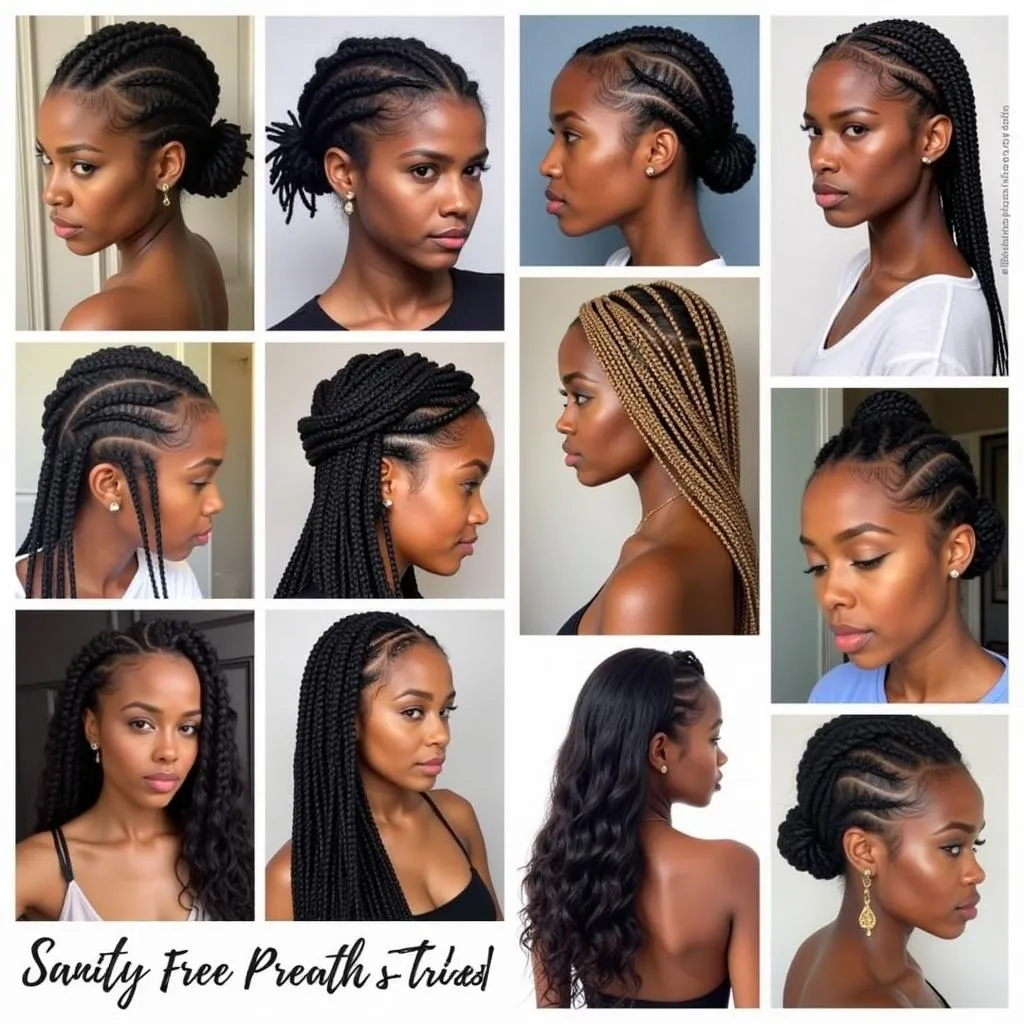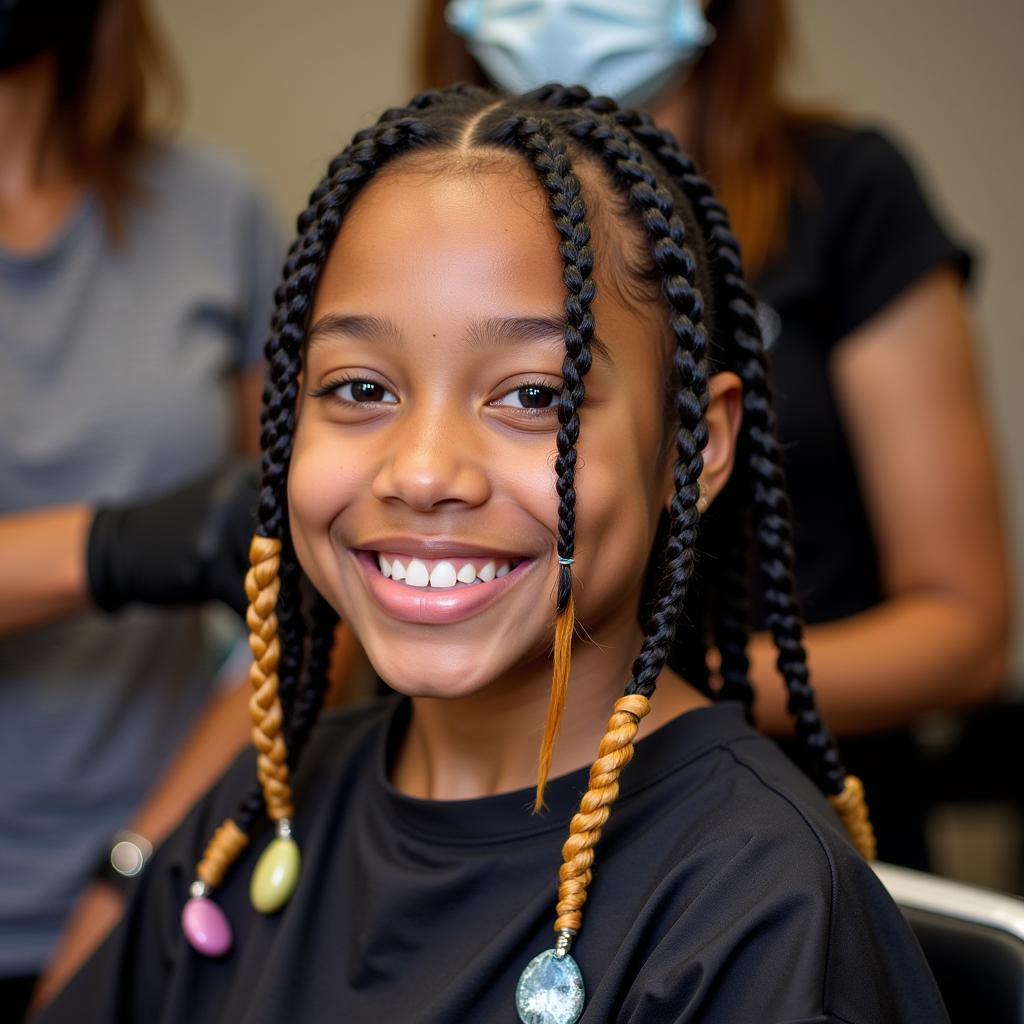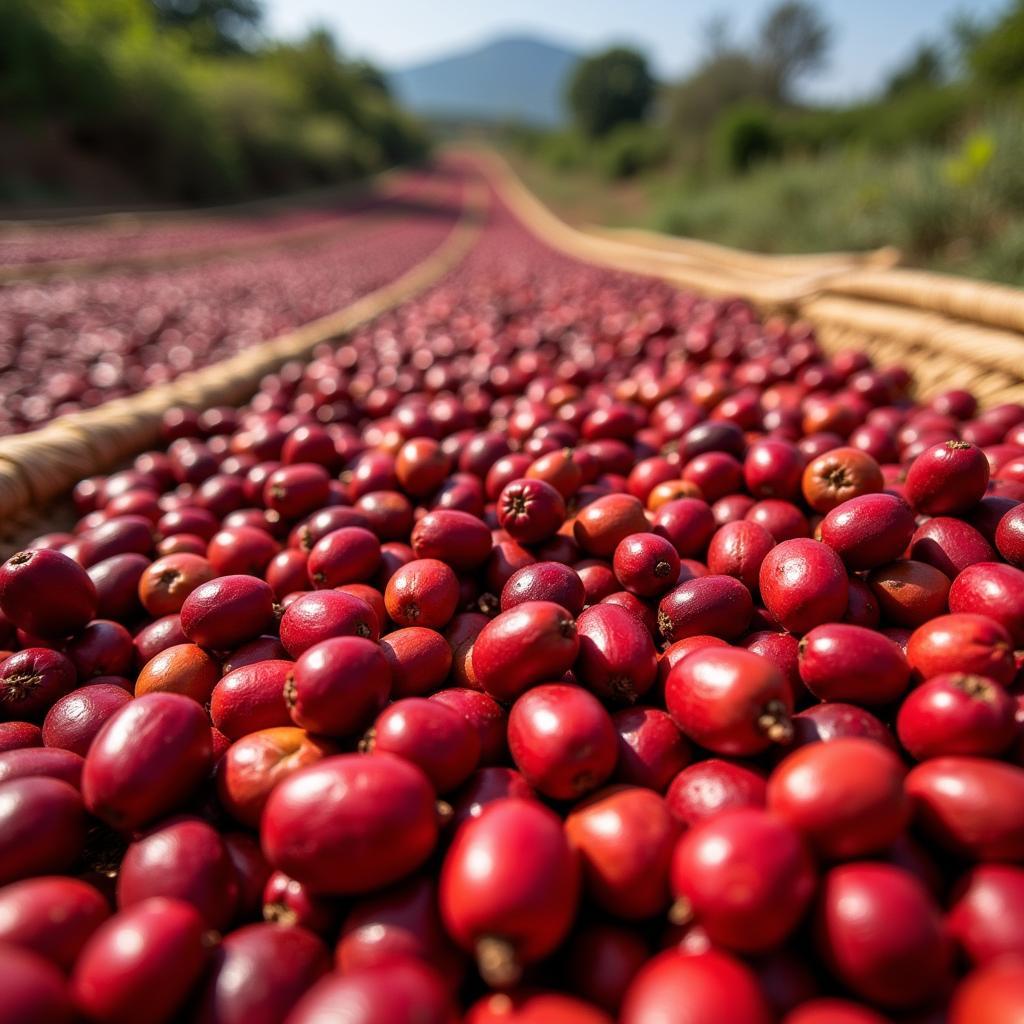African Hair Braiding: A Timeless Trend for 2018 and Beyond
African hair braiding is a centuries-old tradition that continues to be a popular hairstyle choice for women of African descent around the world. From intricate cornrows to stylish box braids, the possibilities are endless when it comes to African hair braiding. In 2018, this trend saw a resurgence in popularity, with celebrities and everyday women alike embracing the versatility and beauty of this timeless style.
What is African Hair Braiding?
African hair braiding involves weaving strands of hair together to create intricate designs. This technique has been practiced for generations in Africa and is often passed down from mothers to daughters. Braiding is not only a beautiful way to style hair, but it also provides a protective style that can help to keep hair healthy and strong.
The History of African Hair Braiding
African hair braiding has a long and rich history dating back to ancient times. Archaeological evidence suggests that braiding has been practiced in Africa for thousands of years. In ancient Egypt, for example, braids were adorned with beads and other decorative elements, reflecting the high status of those who wore them.
Braiding served a variety of purposes in ancient African cultures. It was used to express social status, tribal affiliation, and personal identity. It was also believed to have spiritual significance, with certain braids representing specific deities or ancestors.
Different Types of African Hair Braiding
There are many different types of African hair braiding, each with its unique style and purpose. Some popular types include:
- Cornrows: Cornrows are thin braids that are woven close to the scalp. They can be styled in a variety of ways, including straight, curved, or even in intricate patterns.
- Box braids: Box braids are thicker braids that are typically parted into square sections. They can be left loose or styled into a variety of updos.
- French braids: French braids are a type of braid that is woven from the scalp, gradually incorporating more hair as you move down the length of the braid.
- Fulani braids: Fulani braids are a type of braid that originated in the Fulani culture of West Africa. They are typically characterized by a central part with braids that extend down the side of the head.
- Tribal braids: Tribal braids are a general term for any type of braid that incorporates traditional African patterns or symbols.
Benefits of African Hair Braiding
There are many benefits to African hair braiding, including:
- Protection: Braids can help to protect hair from damage, breakage, and dryness.
- Versatility: Braids can be styled in a variety of ways to create different looks.
- Low maintenance: Braids can last for several weeks, requiring minimal upkeep.
- Cultural significance: Braids are a significant part of African culture and heritage.
“Braids are a symbol of our strength and resilience,” says Aisha Jones, a stylist specializing in African hair braiding. “They are a way for us to express our individuality and celebrate our heritage.”
Trends in African Hair Braiding
In recent years, there has been a growing trend toward more elaborate and creative African hair braiding styles. Some of the latest trends include:
- Colored braids: Adding pops of color to braids is a popular way to make a statement.
- Ombre braids: Ombre braids feature a gradual transition from one color to another.
- Braided updos: Braids can be styled into a variety of updos, including buns, ponytails, and twists.
- Braided accessories: Adding beads, ribbons, or other accessories to braids can add a touch of style.
Tips for Getting African Hair Braided
If you’re considering getting African hair braided, here are a few tips:
- Choose a stylist who specializes in braiding: It’s important to find a stylist who has experience with braiding African hair.
- Be prepared for a long session: Braiding can take several hours, so be prepared to spend some time in the salon.
- Don’t be afraid to experiment: There are many different styles of African hair braiding, so don’t be afraid to try something new.
- Take care of your braids: Once you have your braids, it’s important to take care of them to keep them looking their best.
Conclusion
African hair braiding is a beautiful and versatile hairstyle that has been enjoyed by women of African descent for centuries. With the growing popularity of this trend, there are more styling options than ever before. Whether you’re looking for a protective style, a way to express your individuality, or simply a stylish way to change up your look, African hair braiding is a great option to consider.
FAQ
- How long do African braids last? African braids can last anywhere from 4 to 8 weeks, depending on the type of braid and how well you take care of them.
- Are African braids damaging to hair? African braids are not damaging to hair if they are properly installed and maintained. However, if your braids are too tight, they can cause hair breakage or scalp irritation.
- What are the best products to use on African braids? Moisturizing products are essential for maintaining the health and appearance of African braids. You can use a leave-in conditioner, a hair oil, or a braid spray to keep your braids hydrated and soft.
- How much does African hair braiding cost? The cost of African hair braiding can vary depending on the stylist, the type of braid, and the length of your hair.
- How do I take care of African braids? You should moisturize your braids regularly, sleep on a satin pillowcase, and avoid using too much heat on your hair. You should also remove your braids after 6 to 8 weeks to prevent hair breakage.
 African hair braid styles for 2018
African hair braid styles for 2018
Conclusion
African hair braiding is a testament to the beauty and versatility of African hair. From the intricate patterns to the symbolic meaning, this tradition has captivated people for centuries. As we move forward, African hair braiding continues to evolve, reflecting the changing tastes and trends of our times. It remains a powerful symbol of pride, resilience, and creativity for women of African descent around the world.

